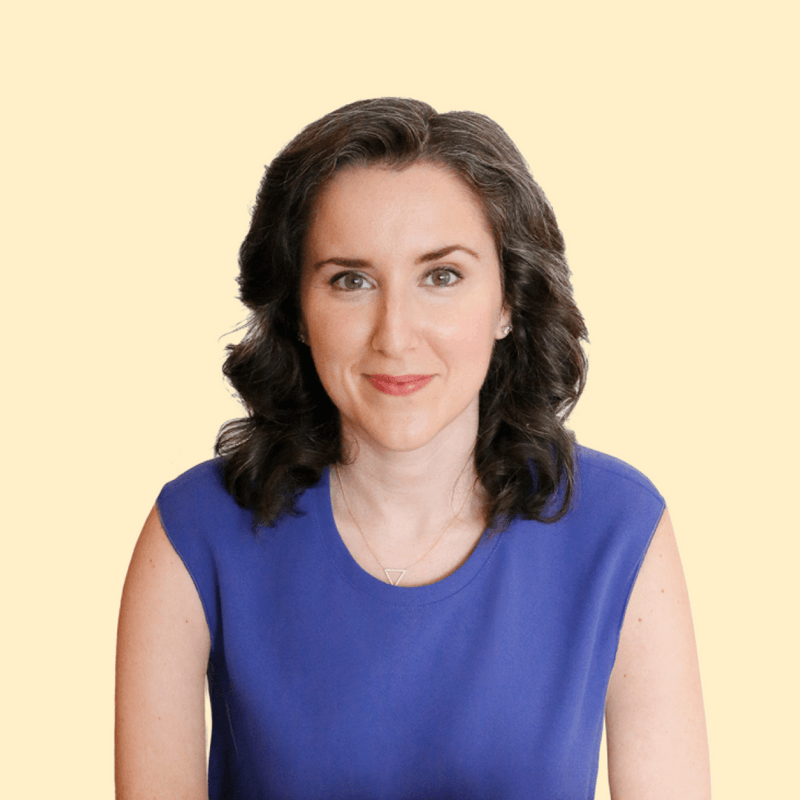What you need to know to optimize your hormones in your 20s, 30s, 40s and 50s
- Last updaed on

Many women dismiss their periods as annoying and disruptive. They just want them to go away, no matter their age. But your period is an important indicator of your overall health. The menstrual cycle is considered a vital sign, just like your blood pressure and your pulse, and to ignore it or wish it gone is to do your whole body a disservice.

Whether you’re in your 20s, 30s, 40s, or 50s, the real issue isn’t having a period. The issue is having period problems and, despite what you’ve been told, period problems aren’t normal. When your hormones are balanced, your periods will be symptom-free. When you’re living in sync with your cycle, you won’t dread your period every month because you won’t experience acne, bloating, fatigue, irritability, PMS, heavy or irregular periods, or severe cramps.
Instead, you will feel great AND you will be able to tap into the unique strengths of each phase of your 28-day cycle. A healthy hormone cycle means that some weeks you’re predisposed to being creative and generative, some weeks you’re set up to be focused and productive, some weeks you’re primed to be a tip-top communicator. When you tap into this rhythm, not only will you not want your period to disappear... you will welcome it as a superpower.
But how to keep your hormones healthy changes as you move through different phases of your life. What worked for you at age 23 may not work as well at age 33 or 43.
Today, I’m going to explain how to optimize your hormonal health during each decade of your menstrual years so you can feel, look, and perform your best at every age.
The 7 Different Life Phases of Female Reproductive Hormones
Here are the seven different hormone phases women move through during adulthood. You will know where you are by your age or your life experiences (or both), but I also recommend taking my Period Type quiz to assess your hormone health and cycle status. I recommend re-taking the quiz time every time you enter a new phase. This will help you get in touch with what your cycle is telling and how to best take care of yourself during each new phase of your life.
1. Puberty (9-21 years old)
This is a time where you might notice irregularity with the menstrual cycle. It takes time for the body to build up enough of a hormonal concentration for you to ovulate and menstruate regularly. This is worth reiterating: some irregularities with your menstrual cycle during this time are normal. As a culture, however, we’re quick to assume that these normal fluctuations need to be regulated with medication, i.e. the birth control pill. This means that so many young women are—needlessly and often harmfully—put on the hormonal birth control.
The better route to managing the normal ups and downs of this hormonal phase is to support adolescent girls and young women with food and lifestyle choices. You can work with your daughter or niece (or your own body) during this phase by limiting exposure to endocrine disruptors (everything from chemical-based shampoo to pesticides in her food) and making sure food is working in her (or your) favor.
The birth control pill only masks reproductive health issues and delays proper treatment and care. A great book to help start a teen on this journey is Cycle Savvy by Toni Weschler (who wrote the comprehensive cycle knowledge bible Taking Charge of Your Fertility).
2. Adult Menstrual Years (21 – 35 years old)
This phase of life brings with a lot of stressors—some of the bad, but many of them good, don’t get me wrong! There’s moving to a new place, going to graduate school and/or finding your first job, having caffeine and alcohol for the first time, and more. Whether the life change you’re experiencing during this phase is exciting or just straight-up stressful, it will affect your hormones. This is when you are likely to notice new period problems or a continuation of the symptoms you experienced in puberty.
Addressing hormonal imbalances in this phase requires the same attention to diet and toxin exposure as the puberty phase. But you will likely need even more focused support during this phase, when regular caffeine consumption may be depleting key micronutrients and a sedentary lifestyle (thanks to the demands of internships or entry-level jobs) may be making hormone problems worse.
During this phase, you will want to pay attention to replenishing key micronutrients and syncing your exercise with your cycle.
3. Pregnancy (age varies)
The degree to which you're hormonally sensitive in this phase indicates the degree to which you did or didn’t address your hormonal symptoms in the adult menstrual phase. You should and can feel great during pregnancy, but it usually needs some preparation. I suggest women prep their bodies with diet and lifestyle changes at least 3 months prior to trying to conceive, but preferably a year prior. If you’re a hormonally-sensitive person like me, then it’s even more important to prep for pregnancy as the surge of pregnancy hormones is more likely to lead to health issues.
4. Post-Partum (age varies)
What you’ve been eating for the decade leading up to having your baby will leave you vulnerable to developing postpartum issues. This is something you want to prevent, but if it’s happening there’s still a lot you can do by engaging in phase-based self care. I’ve shared my postpartum food choices after giving birth to my baby girl—a daily diet that helped me to breastfeed for the next two years, lose the extra baby weight quickly, avoid the mood swings that can arise from my hormone sensitivity, and get my period back at the right time.
5. Perimenopause Phase One (35-45 years old)
This hormonal shift starts at 35 no matter what! You shouldn’t have to feel symptoms during this phase if you’re healthy. You should be ovulating and menstruating regularly and have good muscle tone, skin quality, energy, and sex drive, i.e. still making enough hormones to feel vital and youthful.
It’s key to really pay attention to what your body is telling you in this phase so you can adjust your diet and lifestyle accordingly. It’s very likely that because your hormones are changing, your body will be giving you insight into the underlying problems that need addressing. If you’re not healthy, your body will let you know. Difficulty with fertility, vaginal dryness, wrinkles in skin, and drying of hair are not to be solved at a spa or a salon. These are messages that your hormones need attention—especially before you get into the next phase of perimenopause. You can avoid the effects of premature hormonal aging with the right foods and supplements.
6. Perimenopause Phase Two (45- 55 years old)
This should be a relatively smooth process where FSH levels rise to the point where you no longer ovulate. But for women who have hormone imbalances in phase one of perimenopause, stage two can be unnecessarily rocky—with symptoms and problems starting as early as one’s early 30s!
When hormones are in balance during this stage, the body will manufacture slightly less, though still a balanced amount, of estrogen and progesterone and testosterone. If you’re having hot flashes, night sweats, no libido, etc., you can adjust your diet and lifestyle to ease symptoms and feel better.
Perimenopause is an amazing opportunity to check in with your body, make sure you are doing everything you can to keep your hormones happy and healthy, and to set yourself up for healthy aging.
7. Post-menopause (55 +)
In this phase, FSH levels are now at their new, permanent elevated levels (between 20 and 30) and your estrogen, progesterone, and testosterone should be at stable concentrations, which will be lower than they were in your menstruating years, but still in balanced ratios. If you’ve been eating and taking care of yourself during the previous hormone phases, you should have enough micronutrient building blocks to make this phase symptom-free. Continuing to focus on diet and lifestyle in this phase is key. It’s also a good time to support your digestion and ability to absorb nutrients, which can be compromised with age.
When you care for your hormones with diet, lifestyle, and micronutrient support at every stage of life, you will feel better now—and all down the road.





